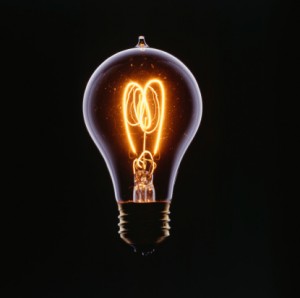rearranging furniture in the dark

Imagine a dark room – it’s pitch black and you can’t see a thing. There are lots of people in the room, all bumping into each other and the various objects that are crowding the space. Everyone is getting frustrated – they can’t get things done, they feel annoyed by all the things that are “getting in their way”, they can’t see things clearly, and they drop things. Nothing seems to be working.
Then someone has the idea to form a committee to come up with a plan of how to deal with the obstacles in the room. “Let’s move them all over into this corner”. And then another group decides to write up a report to analyse the results. Then someone else decides we need an Inquiry to change things around because they don’t like the furniture over there and they’ve come up with a new idea – “let’s move it into the middle of the room”. And so another group forms to evaluate the results, write another White Paper and so on…
This came to mind the other day when I was listening to a story on the radio about yet another initiative by the latest political group who have set up a Government Inquiry to review a previous programme, written a report and are now dismantling it and creating a new programme.
It’s like rearranging the furniture in the dark. Trying to solve the problem at the level of the problem never moves us beyond the problem.
So what is the answer? How do we rise above the issues of the world and our lives? How do we get clarity about what is the right action in any given moment? How do we avoid getting trapped in the ever-repeating cycle of making the same old mistakes?
Let’s come back to the analogy of the dark room. What is needed? Rather than trying to bumble around in the dark, someone simply needs to transcend the problem and turn on the light. Immediately everyone can clearly see what is going on. What were once unresolved issues are now solved. What were once obstacles are now seen for what they are – useful and supportive pieces of furniture.
This mechanism is called the Principle of the Second Element – in order to solve an issue we need to transcend the issue and bring a new, second element to the situation.
This is what meditation does for us. Immediately we transcend. Relatively quickly, with regular practice, we remove the blockages of stress and tiredness and we stabilise the light of consciousness in our mind/body. Having stabilised that awareness we bring the second element of consciousness out into our lives. This is what it means to be enlightened.
Light = consciousness = awareness = perceptual capability.
When we are fully conscious, we can perceive clearly and accurately what is going on around us. Only then can we understand the reality of life. Without it, we continue to make mistakes and waste precious time by repeating the ever-known.


